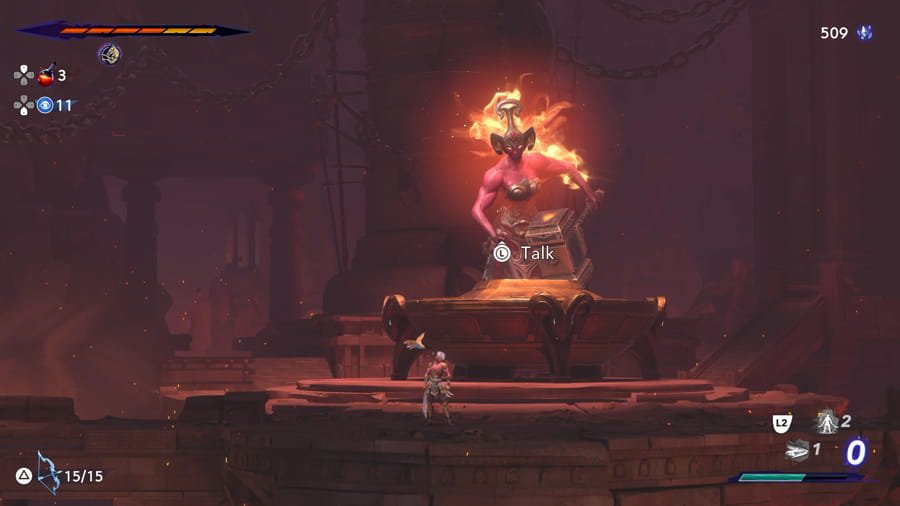Prince of Persia is a series I was convinced was dead until the announcement of Ubisoft Montpellier’s The Lost Crown. Will this game bring back the Prince of Persia series, or does it prove to be another nail in the coffin?
Prince of Persia: The Lost Crown Review
Prince of Persia: The Lost Crown follows the story of Sargon, one of the seven Immortals that are the strongest fighters in the kingdom. Sargon and his allies stop the invading forces of Kushan to protect Persia and its ruler. For Sargon’s part in defeating the enemy general, he is awarded a Royal Sash, which are only the best of the best warriors. After the ceremony, you meet up with your friends and celebrate into the evening. At some point, there is a ruckus, and the prince is kidnapped, leaving you and the Immortals to try to rescue him.
Before you get a chance to save the prince, he is slain, and you are blamed for his death. You soon realize there is some sort of time distortion issues in this place as you face off with another version of yourself. Once you beat him, you are told you can still save the prince if you learn to master time. To do that, you’ll have to collect all the relics and powers that are scattered throughout the game world. In all, you’ll probably spend 15-20 hours getting through the game.
Prince of Persia: The Lost Crown is a 2D metroidvania, which means a lot of backtracking, a lot of death, and a lot of platforming. At first, this isn’t a problem because it’s simple jumps and dashes, but it gets tricky fast. One of the more annoying platforming obstacles is these platforms that switch depending on which way you are looking. For example, one platform might be out for you to jump on if you look right, but it goes back into the wall when you look left. It forces you to fight that instinct to correct yourself midair and instead rely on faith that you won’t fall off. It threw me for a loop quite a few times, but players looking for platforming challenges will find them here.
Combat in Prince of Persia: The Lost Crown is fast-paced and simple, bringing with it a solid counter and dodge system. Similar to the platforming section, you’ll have to fight smart to survive. With trash mobs, you can spam your combo attacks and get through, but bosses and mini-bosses will put you in the dirt if you try that strategy. Watching the enemy tells and correctly reacting makes the game much more manageable. Deflecting the enemies and landing a huge attack only to then dodge them and land another slash on their back feels great. You also get a bow and a chakram for ranged weapons, which help add to the variety. It also means they can add flying enemies, which are always annoying.
All this fighting and platforming exudes cool, but you need upgrades to avoid dying often and losing A LOT of progress. There is only one currency in the game and it is used for weapon and skill upgrades, new amulets, hints, and general buffs. Weapon upgrades make you hit harder but you can also get more arrows or get extra amulet slots. These upgrades come at a high price, making the economy very balanced. Amulets are stat boosts and other buffs, like revealing hidden treasures or adding extra temporary HP. Hints are also nice because you don’t have directions, just markers on where to go. I always had something to work towards to get myself slightly stronger or more durable.
Speaking of secrets, the game is flooded with them. Breakable walls, invisible chests, hidden areas – you’ll find them all. If you pre-ordered, you get a bird that helps you find the secrets; otherwise, you’ll have to smack every wall to test them. These areas are necessary for you to find the crafting materials needed to upgrade your gear to higher levels. Lore items and side quests can also be found hidden throughout the game world. These are typically basic fetch quests or smash-and-grabs that help give you more reasons to explore. Just note that some of the hidden areas and side quests have some of the most challenging platforming sections in the game.
There are a couple of things I don’t like about the game. The fast travel system is very inconvenient. You need to find a statue and then warp from there to another warp point statue. The problem is there aren’t very many in the game, and you can’t warp to them from the map. This means you are doing a lot of needless backtracking. I also think the check points could have been more generous. You lose a lot of time dying to one-hit death spikes and pits.
Tech-wise, I didn’t have any bugs or run into any crashes.
Prince of Persia: The Lost Crown is a beacon of hope for a franchise that’s been gone for far too long. Fans of the series will be happy with this series’ new direction.
The post Prince of Persia: The Lost Crown Review appeared first on GamersHeroes.
